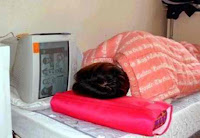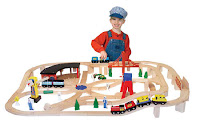Adults with Aspergers and HFA – Support Group is a Facebook community page designed for individuals with Autism, Aspergers, ADHD, PDDs, and other neurological differences. We provide a discussion forum where members communicate with each other, a sister website with exclusive articles and how-to guides, and a chatroom for real-time communication with other Aspergers/HFA adults.
Comment:
I met Jeremy two years ago and recognized Aspberger's almost immediately. We had this great connection, though. We became good friends and my feelings developed from there. He told me repeatedly for a year and a half that he didn't want to be anything more than my friend, but I remained in his life because we had fun together and I believed his friendship was genuine. I also believed that nothing more than friendship would develop, particularly knowing his limitations, and although it was difficult, I wanted to keep him in my life. In February, we took a last minute trip to Nashville to see a hockey game. That night, he told me that he loved me and our relationship turned from friendship to intimate. Since then, I've received so many mixed messages about what he wants that I don't know what to believe. Shortly after our trip to Nashville, he told me that he didn't want an exclusive relationship, yet that's exactly what we built. We were inseparable in February, March, and, in April, we took a 5 day vacation together. On the vacation, he told me that we were together and he began talking about the future. Living together. Shared expenses. Shared life. He began telling people we're in a relationship.
He's an extremely private person, so that announcement was monumental to me. He took me to see his family. In May, though, I had a lot of family gatherings. Knowing his social issues, I tried not to push him to go. I invited him to everything, but didn't tell him he had to go. He was angry that I wanted to spend that much time with my family. He didn't understand why I wanted to do that. And he declined all of my invitations. And he was angry and unforgiving that I was not available to him. He also stopped being intimate with me in any way. I would try to initiate intimacy, not even necessarily sex, but just closeness, touching, etc., and he would flinch and move away from me. It's like he flipped switch and the loving, affectionate man that I glimpsed from February to April shut off. Everything came to a head over the last few days. He went out last Friday with the guys, something I encourage him to to, and he got another girl's phone number. On Saturday, he told me he got that. He wanted to be totally honest. I felt like he was punishing me for the time I spend with my family. We didn't argue then, we had a dinner with some friends to attend, but we did argue on Monday night. He wanted me to stay at his house on Monday night, but he didn't want intimacy, he just wanted my presence. He wanted me to sleep in the recliner next to his sofa, where he likes to sleep. I told him that wasn't comfortable and invited him to sleep in his bed with me and he declined. That lead to a conversation about intimacy, about how I feel and about what I want from our relationship. He was clearly overwhelmed and told me to stop talking and I left.
On Tuesday, he cancelled all of our plans for that evening. On Wednesday, he cancelled the rest of our plans for the week. I went to his house last night to pick up some baseball tickets and some of my other things and we talked a little. He told me that he is angry and that he doesn't want to see me for awhile. He feels like I have lied to him and manipulated him for the last two years, dragging him into a relationship that he never wanted. He thinks I try to annoy him and make him angry. I just don't know what to do. When it's just him and me, and we don't try to define relationships or deal with feelings, we enjoy eachother so much. But I am ready to have a partner, and maybe a family, and I don't know that I can keep dealing with him flipping the switch and turning me off. I am simply at a loss. I am sure this is more than you expected to get when you offered your help, but I could use any advice that anyone wants to give. My close friends and family have told me to give him some space and see what happens. I'm doing my best to do that. I have my own issues with rejection and this whole thing is devastating to me.









